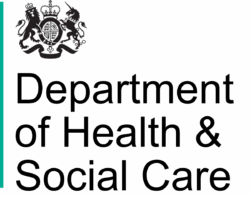10 Year Health Plan won’t change anything without staff
Plans don't change things, people do. Clare Allcock explains why staff engagement isn't optional if the 10 Year Health Plan is to be successfully implemented.
As Paul Corrigan said at NHS ConfedExpo recently, “Plans don’t change things, people do.” This cuts to the heart of why the 10 Year Health Plan represents both a remarkable opportunity, and a fundamental challenge.
At Kaleidoscope, we led the work to engage health and care staff, hosting face-to-face deliberative events, online sessions and focus groups with more than 3,700 health and care staff, to help shape the Plan.
The development of the plan saw the largest conversation about the future of the NHS since its inception. More than 270,000 people – patients, public, health and care staff, partner organisations – shared their experiences and views about the NHS’s future.
Now with the publication of the plan, as we move from planning to implementation, the lessons from this engagement aren’t just interesting insights – they’re critical intelligence for whether the people who must deliver this transformation will embrace it or resist it.
So what have we learnt that those implementing the plan should consider? Three points in particular.
Create conditions for success
Staff are ready for change, but we need to learn from the past and create the conditions for success.
Our engagement revealed something powerful: staff felt genuinely heard, many for the first time in years – more than 90% of participants said they would recommend similar events to colleagues. But they also delivered a stark message about what stands between ambition and reality.
Staff broadly supported the shifts proposed through the 10 Year Plan, but they emphasised it needs implementing correctly and must mark a clear break from past change management.
They clearly defined conditions needed for meaningful improvement: adequate resources; genuine shift to collaborative culture; effective leadership that listens; innovation-friendly environments that empower staff; and reduced bureaucracy.
Staff have experienced too many poorly implemented transformation efforts that didn’t give them autonomy to innovate.
The disconnect between strategy documents and how change actually works on the ground emerges as one of the biggest implementation risks. Staff have experienced too many poorly implemented transformation efforts that didn’t give them autonomy to innovate and created additional bureaucracy rather than simplifying work.
This isn’t cynicism but hard-won wisdom from a workforce that has great ideas, passion and energy for change, even in challenging circumstances.
The implementation challenge isn’t technical – it’s relational. From our wide experience at Kaleidoscope, and drawing on published evidence, we know that change that works meets people where they are (not where politicians might want them to be) and is delivered through many tiny snapshots of change that staff make every day.
Successful delivery will involve active engagement and empowerment of staff to make these local changes – improving both patient care and staff wellbeing as a result.
Local co-creation needed
The plan will only be implemented successfully if staff have the opportunity to shape it locally.
Staff emphasised the fundamental importance of listening and engaging them in local implementation. The lesson is stark: the 10 Year Health Plan cannot be implemented through traditional cascade approaches. It requires genuine co-creation at every level, with staff actively involved in translating national ambitions into workable plans rooted in operational realities.
Without authentic local engagement, even the best national plan becomes top-down imposition.
Without authentic local engagement, even the best national plan becomes top-down imposition, adding administrative burden rather than empowering staff.
This matches what we see in the most successful health system transformations globally. The Buurtzorg model, for example, succeeds because team members have time to listen to patients and a mandate to act on learning.
Local teams need authority and support to adapt implementation based on what they learn from patients, communities and each other. Failure to genuinely embed co-design creates resistance and limits local buy-in – change happens at the frontline, not in boardrooms.
Listening is essential
The 10 Year Health Plan will only succeed if listening to staff is a core part of how the NHS operates – not something that is done occasionally, but something built into everyday work.
Our engagement confirmed what we knew: that NHS staff have incredible commitment and brilliant ideas for improving care, even when times are tough. But we also learnt that this energy gets wasted when people feel ignored or sidelined from decisions that affect their work.
Organisations where staff feel heard, and trusted to make changes, consistently perform better than those that rely on instructions from the top.
The evidence is straightforward: organisations where staff feel heard and trusted to make changes consistently perform better than those that rely on instructions from the top. This isn’t about being nice – it’s about creating the right conditions for lasting change.
We already have the answer from the 270,000 people who took part in Change NHS. The question now is simple: will we act on what they told us and tap into the passion and expertise of our most valuable resource – our people?
If you’re looking to engage your staff in implementing change locally, drop us a line at hello@kscopehealth.org.uk to find out how we can help.
We specialise in supporting organisations to deliver impactful engagement and change that works.
 Clare Allcock3 July 2025
Clare Allcock3 July 2025


Comments